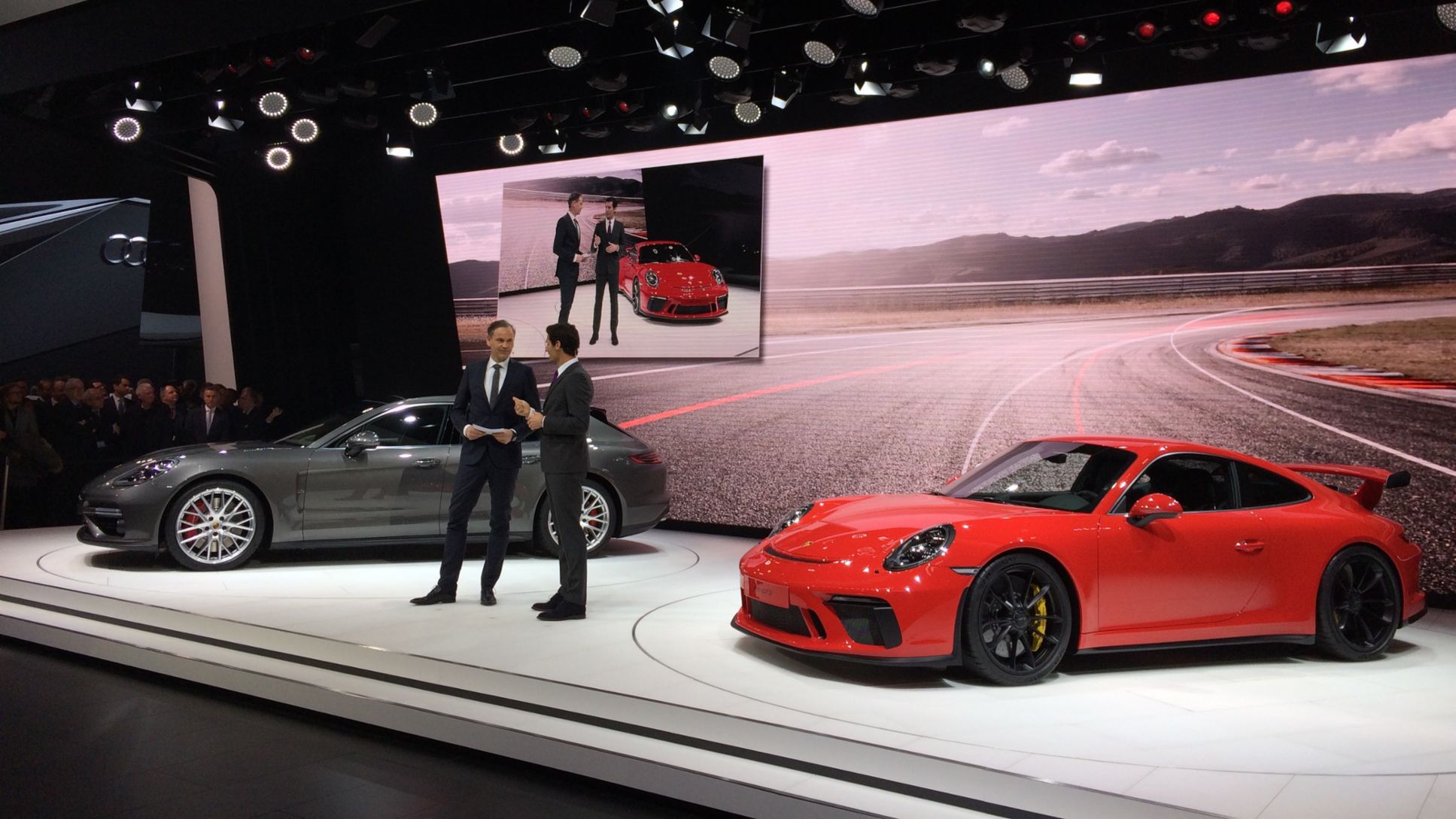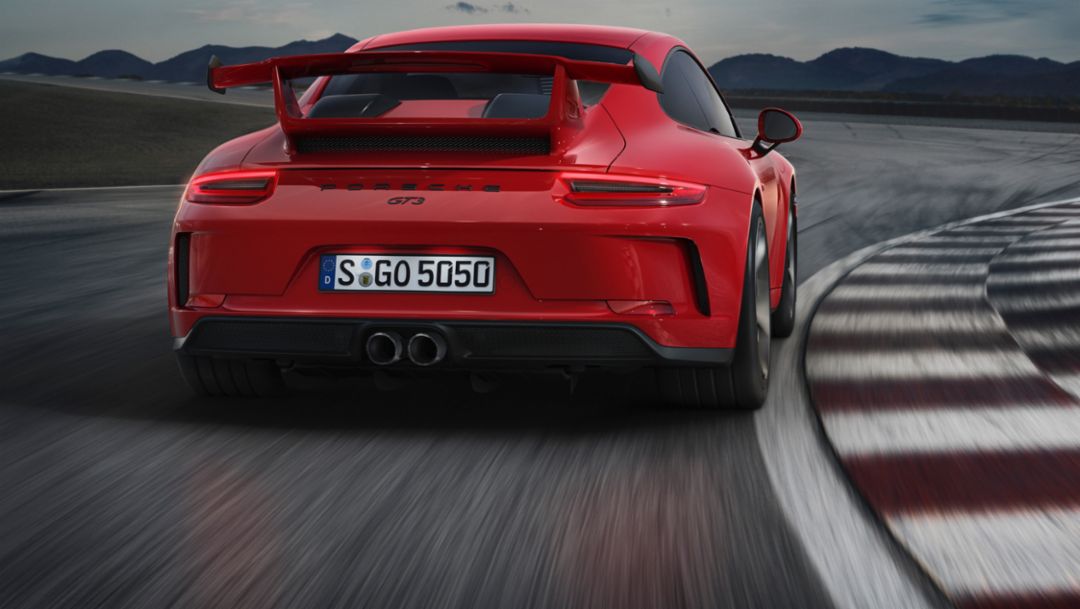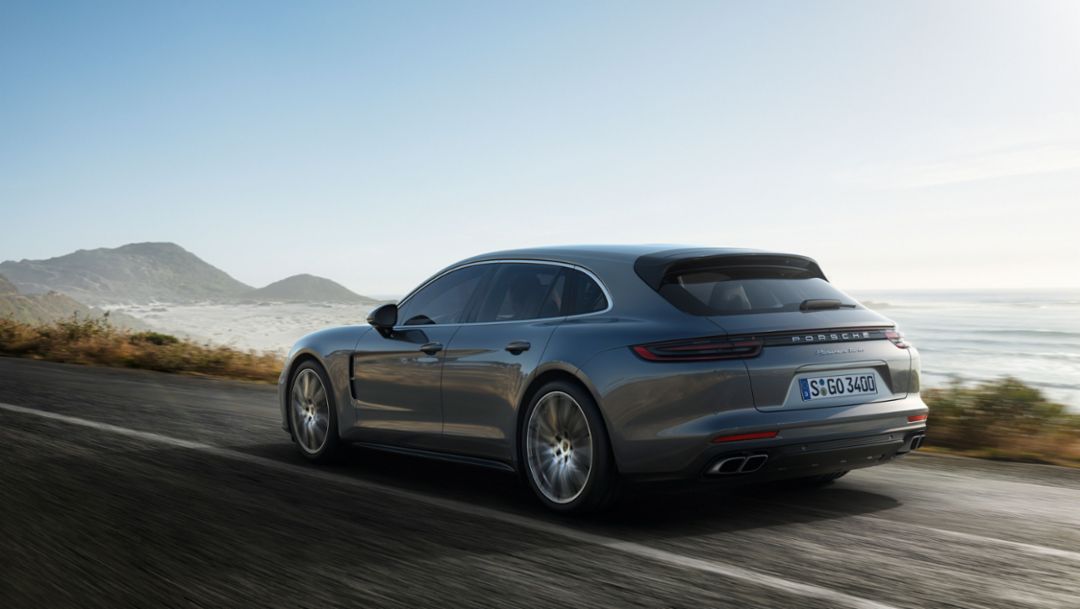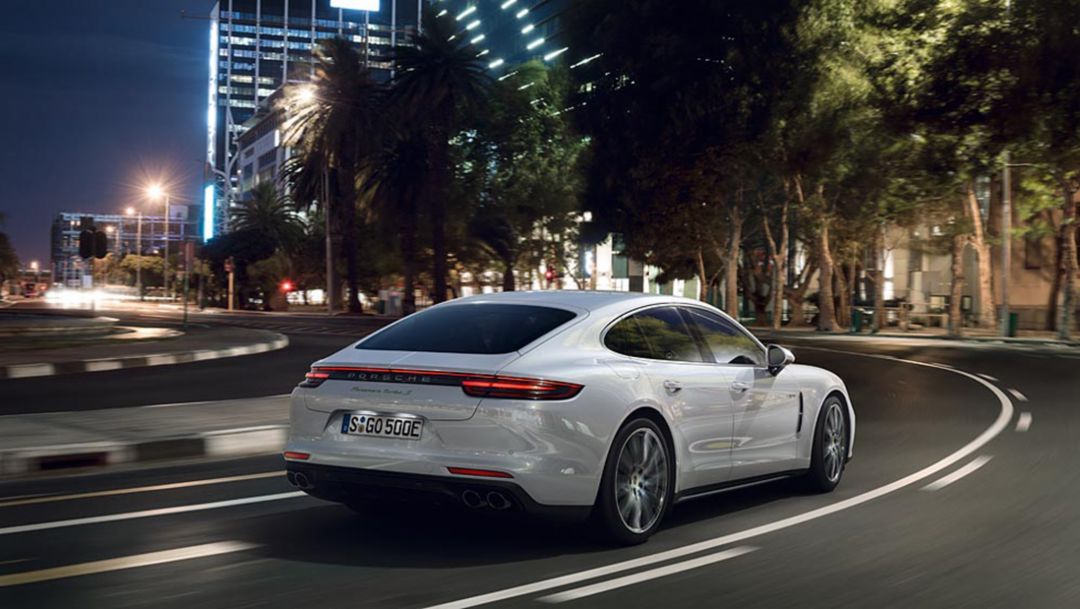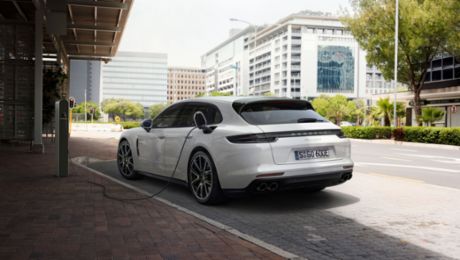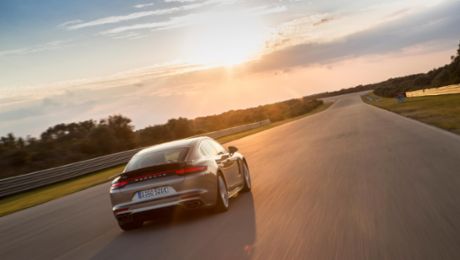Porsche 911 GT3
The Porsche 911 GT3 delivers motorsport-like performance, a systematic light-weight construction and an unfiltered driving experience. In the new generation of the radical 911, the connection between everyday driving and the racetrack is even more intense. At the heart of the latest enhancement beats a four-litre flat engine. The extremely high-revving naturally aspirated engine with 368 kW (500 hp; combined fuel consumption 12.9–12.7 l/100 km; CO2 emissions 288–290 g/km) re-mains virtually unchanged from the thoroughbred 911 GT3 Cup racing car. The re-designed chassis with rear-axle steering and the systematic lightweight construction are specifically tuned to convert the engine power into superior driving dynamics. Developed on the same test track and manufactured on the same production line as the racing cars, Porsche’s motorsport technology has once again been incorporated into a road-approved sportscar.
Get more information about the 911 GT3 here.
Panamera Sport Turismo
Porsche is expanding the Panamera family with the addition of a new body version: The Panamera Sport Turismo is celebrating its world première at the Geneva Motor Show, where five different versions will be on display: Panamera 4, Panamera 4S, Panamera 4S Diesel, Panamera 4 E-Hybrid and Panamera Turbo. Based on the successful sports saloon, the new version once again makes a profound statement in the luxury segment with its unmistakeable design. At the same time, the Sport Turismo, with up to 404 kW/550 hp (Panamera Turbo Sport Turismo: combined fuel consumption 9.5 – 9.4 l/100 km; CO2 emissions 217 – 215 g/km), is more versatile than any other model in its class. With a large tailgate, low loading edge, increased luggage compartment volume and a 4+1 seating concept, the new Panamera model offers the perfect combination of everyday usability and maximum flexibility. “For Porsche, the Panamera Sport Turismo is a step forwards into a new segment, but retains all of those values and attributes that are characteristic of Porsche”, says Michael Mauer, Director of Style Porsche.
Get more information about the Panamera Sport Turismo here.
Panamera Turbo S E-Hybrid
The new Panamera Turbo S E-Hybrid sees the sportscar manufacturer launch a plug-in hybrid model as the flagship of a model line for the first time. The four-litre V8 engine from the Panamera Turbo is combined with an electric motor, resulting in 500 kW/680 hp (Combined fuel consumption 2.9 l/100 km; electric energy consumption 16.2 kWh/100 km; CO2 emissions 66 g/km) of system power and outstanding power delivery: Even when just above idle speed, the Panamera Turbo offers an 850 Nm of torque. That means it accelerates from zero to 100 km/h in 3.4 seconds and reaches a top speed of 310 km/h. The boost strategy of the all-wheel drive Panamera comes from the 918 Spyder super sportscar. In the New European Driving Cycle, the average fuel con-sumption is 2.9 l/100 km, and the new flagship Panamera can drive on fully electric power for up to 50 kilometres. The Panamera Turbo S E-Hybrid underlines the high importance of electromobility to Porsche.
Get more information about the Panamera Turbo S E-Hybrid here.
Consumption data
911 GT3: combined fuel consumption 12.9–12.7 l/100 km; CO2 emissions 288–290 g/km
Panamera 4 Sport Turismo: combined fuel consumption 7.9 – 7.8 l/100 km; CO2 emissions 180 – 178 g/km
Panamera 4S Sport Turismo: combined fuel consumption 8.3 – 8.2 l/100 km; CO2 emissions 189 – 187 g/km
Panamera 4S Diesel Sport Turismo: combined fuel consumption 6.8 – 6.7 l/100 km; CO2 emissions 178 – 176 g/km
Panamera Turbo Sport Turismo: combined fuel consumption 9.5 – 9.4 l/100 km; CO2 emissions 217 – 215 g/km
Panamera 4 E-Hybrid Sport Turismo: combined fuel consumption 2.6 l/100 km; electric power consumption 15.9 kWh/100 km; CO2 emissions 59 g/km
Panamera Turbo S E-Hybrid: Combined fuel consumption 2.9 l/100 km; electric energy consumption 16.2 kWh/100 km; CO2 emissions 66 g/km
